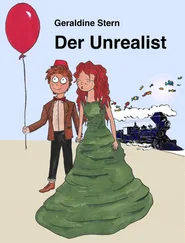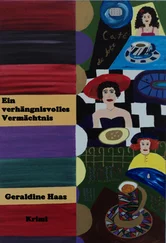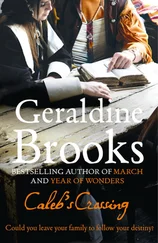I made my way a few rods through the mud and then, where the bank dipped a little, scrambled with some difficulty into a mown field. In the flicker of firelight I discerned a small band of walking wounded sitting listless in the hollows of a haystack where they would shiver out the night. I inquired from them where the hospital tents had been established. “There ain’t no tents: they’re using some old secesh house,” said a private, nursing a bandaged arm. “Strange place it is, with big white statues all nekked, and rooms filled up with old books. There’s an old secesh lives there, cracked as a clay pot dropped on rock, seemingly, with just one slave doing for him. She’s helping our surgeon, if you’d credit it. She probed out my wound for me and bound it up fine, like you see,” he said, proudly raising his sling, then wincing as he did so. “She tol’ me they was more than a dozen slaves on the place before, and she the only one ain’t ran off.”
I don’t think the private knew his left from right, for his directions to the house were less than coherent, and his friend, whose neck was bandaged and who couldn’t speak, kept waving his hands in objection at every turn the other man described. So I blundered on in the dark, finding myself at the riverbank again, uncertain whether the farther shore was Maryland or Virginia. I turned back and found a line of snake-rail fence that led past the ruins of what must have once been a gristmill. I continued following the fence line until it turned in at a gate. Beyond stretched a drive lined with dogwoods, and a gravel of river stone that was hard on my bootless feet.
And then I knew I was on the right path, for I smelled it. If only field hospitals did not always have the selfsame reek as latrine trenches. But so it is when metal lays open the bowels of living men and the wastes of digestion spill about. And there is, too, the lesser stink, of fresh-butchered meat, which to me is almost equally rank. I stopped, and turned aside into the bushes, and heaved up bitter fluid. Something about my state just then, bent double and weak, brought to my mind the recollection of my father, caning me, for refusing my share of salt pork. He believed a meatless diet such as mine made me listless at my chores. But what I shirked were the tasks themselves, foul and cruel. No soul should be asked to toil all day with the yellow oxen yoked up, unwilling, their hide worn raw by the harness, their big blank eyes empty of hope. It drains the spirit, to trudge sunup till sundown at the arse-end of beasts, sinking into piles of their steaming ordure. And the pigs! How could anyone eat pork who has heard the screams at slaughter when the black blood spurts?
Perhaps it was the darkness, or the different season. Perhaps my biliousness and grief and exhaustion. Perhaps simply that twenty years is a very long time for an active mind to retain any memory, much less one with dark and troubled edges, begging to be forgot. Whatever the case, I was halfway up the wide stone steps before I recognized the house. I had been there before.
CHAPTER TWO A Wooden Nutmeg
I had been there, on a spring morning, when the fog stood so thick on the river that it looked as though the bowl of the sky had spilled all its milky clouds into the valley. I was eighteen years old, and I had walked, in stages, the long way from the port at Norfolk. I was lean and strong, with sun-bleached hair that stuck out near-white from under the brim of my straw hat.
There was a little barge-ferry then, that would stop on request, at a jetty on the island’s northern tip. I had alighted there on a whim and walked the mile and a half to the house, whistling the song of the boatman who had poled the crossing. The white dogwoods were in flower all the way up the drive, and the air seemed viscous and honey-fragrant, unlike the mud-scent of a chill May morning on Spindle Hill. I had two heavy trunks tied to the pole across my shoulder, and so I was defenseless when a brace of mastiffs came baying after me, sending the stones flying under their thick, swift paws. It was, you might say, a typical welcome for a Connecticut peddler, our reputation being less than luminous. Too many of us, in the quest for gain, had forsaken honesty for cunning, decency for coarseness. But I knew dogs: at home we’d had a collie that was like an extra pair of arms when you needed the sheep gathered in. And I’d learned a thing or two more on my way north from Norfolk, the most useful being that if a Cerberus comes at you barking and snarling, call him to you with a joyous enthusiasm. Nine dogs in ten will greet fear with aggression, and friendship with fine humor. By the time I reached the big house those two beasts were gamboling beside me, nuzzling their big drooly muzzles against my thighs.
A young servant stood atop the steps, looking surprised and perhaps a trifle annoyed by this. She whistled sharply, and the dogs’ ears flattened as they sidled off. “Those two would more likely have a chunk each out of your hams before you’d got a halfway up the drive than be fawning like that.” Her voice was unexpected: refined, and resonant as a bell. She stood with arms akimbo, her long-fingered hands, dark brown on top and pale pink under—which contrast still surprised me—resting on the waistband of a starched skirt striped cream and gray, which she wore with a spotless, high-necked bodice. Around her head was knotted a rigolette, dyed the color of beet, that made a handsome effect against her copper-colored brow. Her appearance was an excellent omen: a household that got its slaves up so neatly was likely to be liberal-handed.
As she came down the steps to where I stood, I set down my tin trunks, swept off my hat, and affected what I hoped was my most ingratiating smile. Manners matter in the South; I had met even field hands, half-naked and barefoot, who comported themselves with more grace than the average educated New Englander. I had learned, too, that winning over the upper servants was the first object for a gentleman of the road in pursuit of a sale. It was they, after all, who presented one’s suit for admission to the master—or, of keener interest to me, to the mistress—and they could do that in any number of more or less helpful ways.
Since I stand more than six feet in my stockings, being eye to eye with a woman is not something that I have grown much used to. But that day, my pale blue eyes gazed into her dark ones, which were lit with a faint amusement. Even now I remember that I was the first to look away.
“Thinking to charm me, as well as the dogs,” she said, in that silvery voice. “Yankee, are you? From Connecticut?” She raised her chin sharply and made a slight clicking sound with her tongue. “The last peddler through here was a Connecticut boy, too. Sold the cook a jar of wooden nutmegs.”
“For shame!” I said, and meant it, though I’d seen many a likely fake whittled in the idle campfire hours of my competitors.
“I don’t believe the household will be interested to see your notions, but we’d be remiss if we did not offer you a cold draught on a warm morning.”
There you are, I thought. A Negro slave, probably not even as old as I, yet with a style of address that would not shame a great peer. No one I knew at home talked like that, not even the minister. Spindle Hill, a thousand feet high and with only one narrow road leading up to it, was a terse place, where people spoke a spare dialect that even the folk in Hartford, not twenty miles distant, could not readily understand. I was, at home, a “loping nimshi,” rather than an idling fool. The plural of “house” in our thinly settled hamlet was “housen” and my father, when he wished to assert something, would end his declaration with the words “I snore.” Not even a century separated me from the great-grandparents who had wrested our fields out of pine and stone and oaken wilderness; our home, built by my father in a clearing made by an Indian deerhunter’s fire circle, was just three rooms of wide, unpainted board already falling into ruin. I hoped to help my father find the funds to build a new house, and I had used to look forward to the day I would return with profits from my peddling in hand. But somewhere along the York or the James, I had ceased to long for that day. Now, to my shame, I would find myself gazing at the planters’ idle, silken wives and blushing at the memory of my work-worn mother, her clay pipe perched on a chin that bristled with errant hairs, her hands engaged in ceaseless toil, from the time they touched the cow’s udder in the dim predawn to the time they set down the shuttle of the flax loom late at night.
Читать дальше












